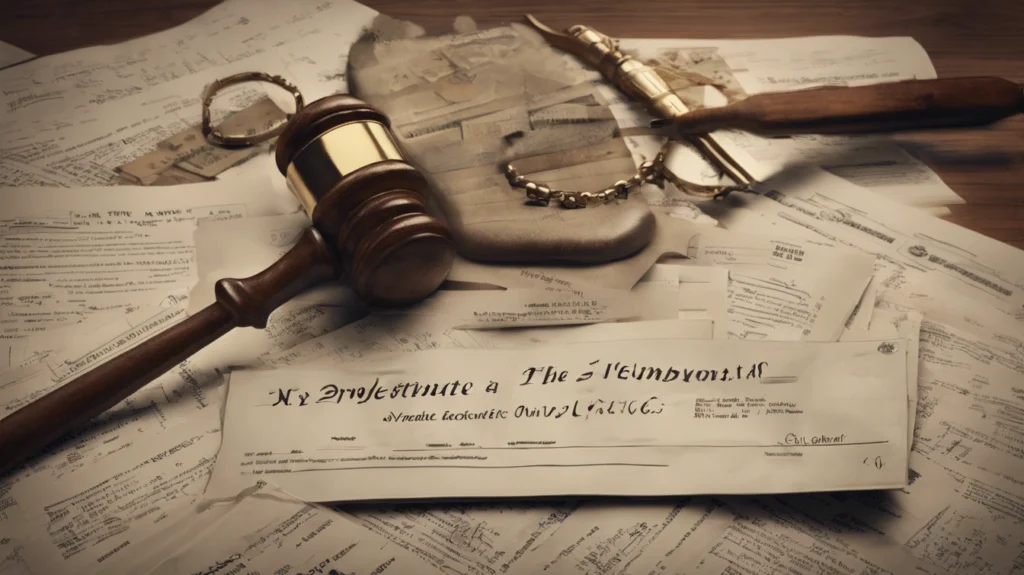Does Your Estate Have to Go Through Probate in New York?
At Morgan Legal Group, located in New York City, we specialize in estate planning, probate, guardianship, elder law, wills, and trusts. A common question that arises in estate planning is whether an estate has to go through probate. This article will explain the probate process, its necessity, and potential alternatives under New York State law.
Understanding Probate
Probate is the legal process through which a deceased person’s estate is administered and distributed. The process involves validating the will (if one exists), appointing an executor or administrator, paying debts and taxes, and distributing the remaining assets to the beneficiaries.
The Role of the Executor
The executor, named in the will, is responsible for managing the estate through the probate process. If there is no will, the court will appoint an administrator to perform these duties. The executor’s responsibilities include:
- Filing the will with the probate court
- Identifying and inventorying the estate’s assets
- Paying debts and taxes
- Distributing the remaining assets to the beneficiaries
When Is Probate Necessary?
Probate is generally required when a person dies with assets solely in their name. However, there are exceptions and alternatives that can help avoid or simplify the probate process:
1. Small Estates
In New York, if the value of the estate is below a certain threshold, it may qualify for a simplified probate process known as a “small estate proceeding” or “voluntary administration.” As of 2024, the threshold is $50,000, excluding the value of real estate.
2. Jointly Owned Property
Assets owned jointly with the right of survivorship, such as joint bank accounts or real estate, pass directly to the surviving owner without going through probate.
3. Beneficiary Designations
Assets with designated beneficiaries, such as life insurance policies, retirement accounts, and payable-on-death (POD) or transfer-on-death (TOD) accounts, bypass probate and go directly to the named beneficiaries.
4. Trusts
Assets placed in a revocable living trust during the grantor’s lifetime can avoid probate. The trust document outlines how the assets are to be managed and distributed after the grantor’s death.
Advantages of Avoiding Probate
Avoiding probate can offer several benefits:
1. Privacy
Probate is a public process, and the details of the estate, including assets and beneficiaries, become part of the public record. Avoiding probate helps maintain privacy.
2. Time and Cost
Probate can be time-consuming and expensive, involving court fees, attorney fees, and executor fees. Avoiding probate can save time and reduce costs for the beneficiaries.
3. Simplified Administration
Bypassing probate can simplify the administration of the estate, allowing for a quicker and more efficient distribution of assets to the beneficiaries.
How to Avoid Probate
There are several strategies to avoid or minimize the need for probate:
1. Create a Revocable Living Trust
A revocable living trust allows you to place your assets in a trust during your lifetime. You retain control over the assets and can make changes to the trust as needed. Upon your death, the assets are managed and distributed according to the terms of the trust, bypassing probate.
2. Use Beneficiary Designations
Ensure that you have designated beneficiaries for assets such as life insurance policies, retirement accounts, and bank accounts. Review and update these designations regularly to ensure they reflect your current wishes.
3. Joint Ownership
Consider holding property jointly with the right of survivorship. This ensures that the property passes directly to the surviving owner without going through probate.
4. Transfer-on-Death Deeds
In some states, including New York, you can use transfer-on-death (TOD) deeds to transfer real estate directly to a beneficiary upon your death, avoiding probate.
Challenges and Considerations
While avoiding probate can be beneficial, it is important to consider potential challenges and ensure that your estate plan is properly executed:
1. Legal Compliance
Ensure that all legal documents, such as trusts and beneficiary designations, comply with New York State law. A poorly drafted or non-compliant document can lead to legal challenges and invalidate your estate plan.
2. Updating Documents
Regularly review and update your estate planning documents to reflect changes in your life circumstances, such as marriage, divorce, the birth of a child, or changes in asset ownership.
3. Comprehensive Planning
Avoiding probate is just one aspect of estate planning. Ensure that your plan addresses other important issues, such as tax planning, asset protection, and providing for minor children or individuals with special needs.
How Morgan Legal Group Can Help
At Morgan Legal Group, we provide expert guidance and comprehensive legal services for all aspects of estate planning and probate. Our experienced attorneys are dedicated to helping you create a plan that protects your assets and ensures your wishes are carried out under New York State law.
Expert Guidance
Our team of experienced attorneys has a deep understanding of New York State estate planning laws. We provide expert guidance to help you navigate the complexities of estate planning and make informed decisions.
Personalized Service
We take the time to understand your unique situation and develop a customized legal strategy that meets your needs. Our personalized approach ensures that your estate plan reflects your wishes and protects your interests.
Comprehensive Legal Solutions
From drafting wills and trusts to managing probate and guardianship matters, we offer a wide range of services to address all aspects of estate planning. Our goal is to provide you with a seamless and stress-free experience.
Contact Us
If you need assistance with estate planning or understanding the probate process, contact Morgan Legal Group today. Our experienced attorneys are here to provide you with the expert legal assistance you need. Schedule a consultation with us and take the first step towards securing your future and protecting your assets under New York State law.









